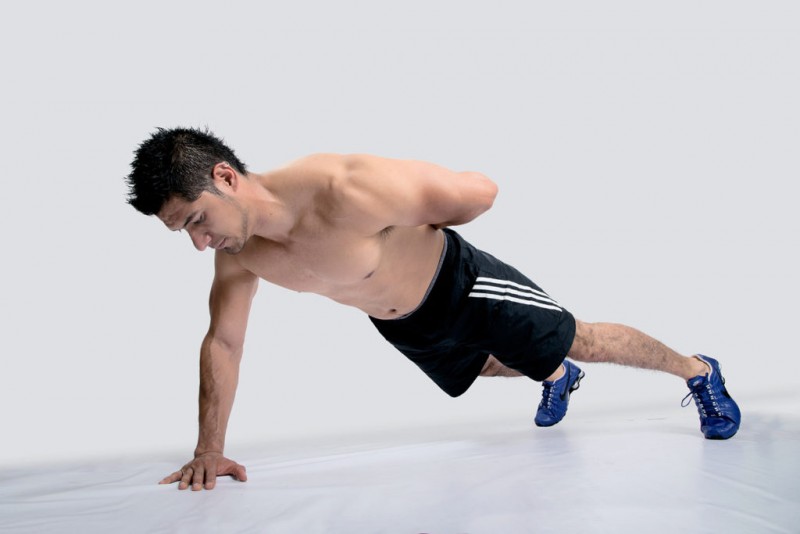
The push-up is a classic and highly effective bodyweight exercise that targets various muscle groups, providing numerous benefits for overall strength and fitness. Learning to perform a perfect push-up not only boosts your upper body strength but also helps to develop core stability. Whether you are a beginner or a seasoned fitness enthusiast, mastering the correct push-up technique is essential to maximize results and prevent injuries.
Understanding the Perfect Push-Up
A perfect push-up involves maintaining a straight line from head to heels throughout the movement, engaging the core and glutes while lowering and raising your body with controlled motion. The exercise primarily targets the chest, shoulders, triceps, and core muscles.
Benefits of Performing Perfect Push-Ups
Before diving into the technique, let's explore the benefits of incorporating perfect push-ups into your workout routine:
Proper Push-Up Form and Technique
To perform a perfect push-up, follow these essential guidelines:
Hand Placement and Width
Place your hands slightly wider than shoulder-width apart on the ground. Ensure that your fingers are pointing forward or slightly turned inward.
Body Alignment and Core Engagement
Keep your body in a straight line from head to heels throughout the movement. Engage your core and glutes to maintain stability.
Elbow Position and Range of Motion
As you lower yourself, keep your elbows at around a 45-degree angle from your body. Lower your chest until it's just above the ground and push back up without locking your elbows at the top.
Common Push-Up Mistakes to Avoid
Avoid these common push-up mistakes to ensure maximum effectiveness and prevent injuries:
Arching the Back
Avoid arching your back during the movement. Keep your core engaged and maintain a straight line from head to heels.
Dropping the Hips
Ensure your hips don't sag or drop during the push-up. Keep your body in a straight line throughout the exercise.
Incorrect Hand Position
Placing your hands too high or too low can strain your wrists and reduce the effectiveness of the push-up. Maintain the proper hand position and width.
Building Strength for Perfect Push-Ups
If you're new to push-ups or find them challenging, there are modified variations to build strength progressively:
Modified Push-Up Variations
Start with incline push-ups, where your hands are elevated on a stable surface like a bench or a sturdy chair.
Incline Push-Ups
Perform push-ups with your hands on an elevated surface to reduce the intensity and gradually build strength.
Knee Push-Ups
Lower the intensity further by performing push-ups from your knees instead of your toes.
Push-Up Negatives
Focus on the lowering phase of the push-up to build eccentric strength.
Push-Up Progressions
Gradually increase the difficulty by trying variations like diamond push-ups or wide grip push-ups.
Incorporating Push-Ups into Your Workout Routine
To make the most of your push-up workouts, consider the following:
Push-Up Frequency
Include push-ups in your workout routine at least three times a week to see significant improvements.
Combining Push-Ups with Other Exercises
Incorporate push-ups with other bodyweight exercises or weightlifting routines for a well-rounded workout.
Push-Up Variations for Advanced Users
Once you've mastered the traditional push-up, challenge yourself with these advanced variations:
Plyometric Push-Ups
Add explosive power to your push-ups by pushing off the ground and clapping your hands in mid-air.
One-Arm Push-Ups
Build tremendous upper body strength and balance by performing push-ups with one hand.
Handstand Push-Ups
Upside-down push-ups that target your shoulders and require a higher level of strength and stability.
Overcoming Plateaus and Challenges
As you progress, you might encounter plateaus or challenges. Here's how to overcome them:
Increasing Repetitions
Gradually increase the number of push-ups you do in each set to improve endurance.
Enhancing Stability and Control
Focus on maintaining stability and control throughout the movement for better results.
Push-Up Safety and Injury Prevention
To perform push-ups safely and reduce the risk of injury:
The perfect push-up is a versatile and effective exercise that can significantly contribute to your overall fitness level. By mastering the correct technique, incorporating variations, and being consistent in your practice, you can achieve impressive results and enjoy the numerous benefits of this timeless exercise.
What is Typhoid and How to Prevent it?
Sculpt Your Hourglass Figure with These 7 Yoga Asanas
Eating these fruits increases eyesight and keeps diseases away